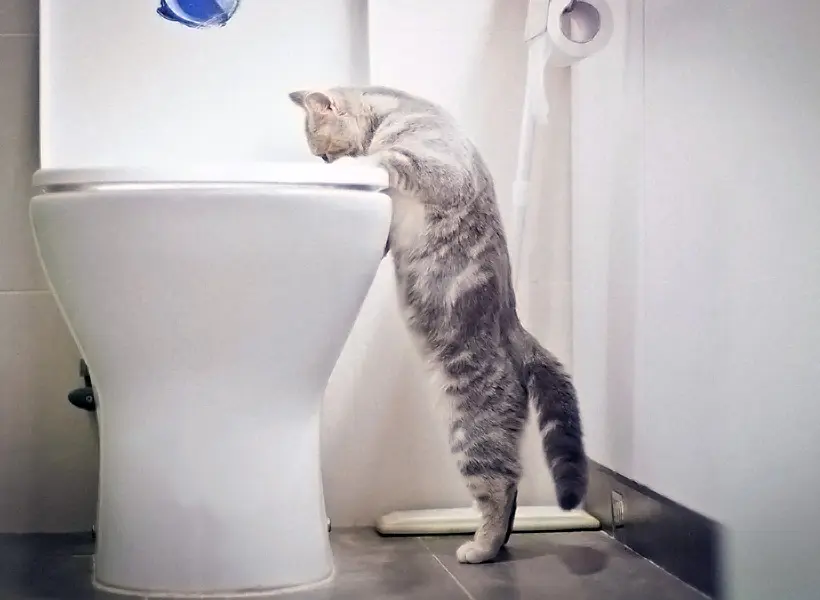Never Flush Cat Poop Down Your Toilet - Safeguard Your Plumbing Infrastructure
Never Flush Cat Poop Down Your Toilet - Safeguard Your Plumbing Infrastructure
Blog Article
This post following next relating to Don’t flush cat feces down the toilet is seriously attention-grabbing. You should take a look.

Intro
As pet cat proprietors, it's essential to bear in mind exactly how we take care of our feline pals' waste. While it might seem practical to purge cat poop down the toilet, this practice can have harmful effects for both the environment and human health and wellness.
Ecological Impact
Purging cat poop introduces dangerous microorganisms and bloodsuckers right into the water system, positioning a substantial risk to marine ecological communities. These contaminants can adversely affect marine life and concession water high quality.
Health and wellness Risks
In addition to ecological concerns, purging feline waste can likewise pose health threats to humans. Cat feces might have Toxoplasma gondii, a parasite that can create toxoplasmosis-- a possibly serious health problem, especially for expectant ladies and people with damaged body immune systems.
Alternatives to Flushing
Fortunately, there are safer and extra responsible ways to dispose of pet cat poop. Consider the complying with alternatives:
1. Scoop and Dispose in Trash
The most usual method of disposing of feline poop is to scoop it into a naturally degradable bag and throw it in the trash. Make sure to use a dedicated clutter scoop and deal with the waste promptly.
2. Usage Biodegradable Litter
Opt for eco-friendly feline trash made from products such as corn or wheat. These clutters are eco-friendly and can be securely disposed of in the trash.
3. Bury in the Yard
If you have a lawn, think about burying pet cat waste in an assigned area far from veggie gardens and water sources. Be sure to dig deep sufficient to stop contamination of groundwater.
4. Mount a Pet Waste Disposal System
Buy an animal waste disposal system specifically designed for feline waste. These systems use enzymes to break down the waste, reducing odor and ecological effect.
Conclusion
Liable animal possession extends past supplying food and shelter-- it additionally entails proper waste management. By avoiding flushing pet cat poop down the commode and selecting alternate disposal techniques, we can decrease our environmental impact and secure human health.
Why You Should Never Flush Cat Poop Down the Toilet
A rose by any other name might smell as sweet, but not all poop is created equal. Toilets, and our sewage systems, are designed for human excrement, not animal waste. It might seem like it couldn’t hurt to toss cat feces into the loo, but it’s not a good idea to flush cat poop in the toilet.
First and foremost, assuming your cat uses a litter box, any waste is going to have litter on it. And even the smallest amount of litter can wreak havoc on plumbing.
Over time, small amounts build up, filling up your septic system. Most litter sold today is clumping; it is made from a type of clay that hardens when it gets wet. Ever tried to scrape old clumps from the bottom of a litter box? You know just how cement-hard it can get!
Now imagine just a small clump of that stuck in your pipes. A simple de-clogger like Drano isn’t going to cut it. And that means it’s going to cost you big time to fix it.
Parasitic Contamination
Believe it or not, your healthy kitty may be harboring a nasty parasite. Only cats excrete Toxoplasma in their feces. Yet it rarely causes serious health issues in the cats that are infected. Most people will be fine too if infected. Only pregnant women and people with compromised immune systems are at risk. (If you’ve ever heard how women who are expecting are excused from litter cleaning duty, Toxoplasma is why.)
But other animals may have a problem if infected with the parasite. And human water treatment systems aren’t designed to handle it. As a result, the systems don’t remove the parasite before discharging wastewater into local waterways. Fish, shellfish, and other marine life — otters in particular — are susceptible to toxoplasma. If exposed, most will end up with brain damage and many will die.
Depending on the species of fish, they may end up on someone’s fish hook and, ultimately on someone’s dinner plate. If that someone has a chronic illness, they’re at risk.
Skip the Toilet Training
We know there are folks out there who like to toilet train their cats. And we give them props, it takes a lot of work. But thanks to the toxoplasma, it’s not a good idea.

I'm just very serious about How to Dispose of Cat Poop and Litter Without Plastic Bags and I'm hoping you appreciated the new blog post. Make sure you take a moment to share this blog entry if you enjoyed reading it. Thanks for your time. Visit us again soon.
Visit My Web Page Report this page